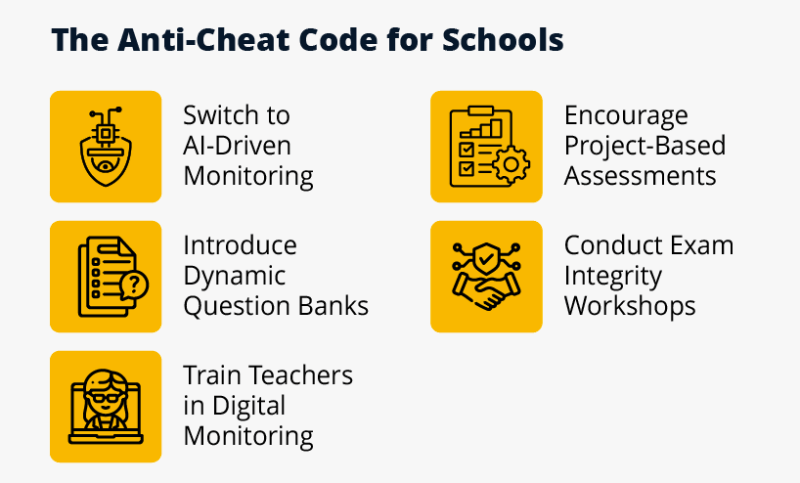
CBSE’s two-year ban on cheating highlights a simple truth: real learning can’t be faked. More than just a disciplinary warning, this reform is a challenge to the way schools teach and assess. For teachers and school leaders, the question isn’t just about catching students in the act; it’s about creating classrooms and assessments where cheating feels impossible.
This is the perfect moment to rethink traditional exams, innovate with evaluation strategies, and ensure that every student’s learning journey is both honest and meaningful.

Now, schools must go beyond monitoring and start reimagining assessments that truly reflect student understanding. This means designing lessons and tests that engage, challenge, and leave no room for shortcuts.
Whether it’s rethinking tests or trying new classroom approaches, staying ahead of CBSE’s two-year ban on cheating is crucial. To begin with, here are four strategies you can easily implement in your classroom right away:
Spot Patterns, Not Just Papers
Instead of only checking answers, look for patterns like repeated mistakes, identical responses, or sudden jumps in performance. These clues reveal more than cheating, they show where students need help. With the Power Questions feature by Extra Intelligence, you can create different question sets from the same concept for each student. This reduces predictability, ensuring assessments are fair, secure, and almost impossible to manipulate or cheat.
Make Ethics A Daily Lesson
Turn ethics into everyday conversations, case studies, or short classroom discussions. When students see honesty modeled and celebrated daily, it shifts their mindset. Build a culture where integrity is as important as grades, making cheating less attractive and real learning more rewarding.
Leverage Tech for Transparency
Technology can transform fairness in assessments. Smarter evaluations powered by technology can make assessments error-proof while leaving no room for shortcuts. Ready to take your assessment game to the next level? Subjective Answer Evaluation by Extra Intelligence is what you need. This feature lets you scan handwritten answers and get AI-powered evaluations backed by accurate scores and detailed feedback, all in just a click. It ensures fair grading and reduces bias, making assessments both transparent and meaningful.
Shift to Mixed-Mode Assessments
Instead of relying only on pen-and-paper tests, introduce quizzes, case studies, and group activities. Pair these with written tasks to cover both knowledge and application. A mixed-mode system makes learning engaging, encourages critical thinking, and creates fairer evaluations where students’ strengths are highlighted across different assessment formats.
A ban this strict isn’t just about discipline, it’s about trust. When classrooms champion fairness and innovative assessments, cheating loses its appeal. CBSE’s move is a reminder that building honest learning environments is the true foundation of academic success and student growth.


